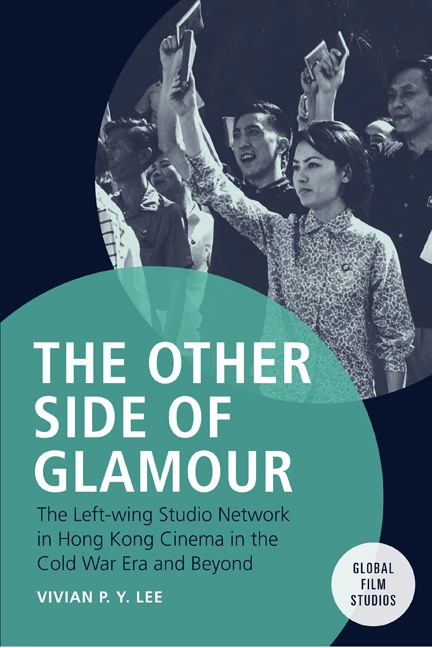 The Other Side of Glamour
The Other Side of Glamour Book contents
- Frontmatter
- Cotents
- List of Figures
- Acknowledgments
- A Note on the Timeline
- Timeline
- Dedication
- 1 Introduction
- 1 The Left-Wing Film Apparatus in Postwar Hong Kong
- 2 Left in the Right Way: Corporate Strategy and the Making of a Popular left-wing
- 3 Remaking Cantonese Film Culture: Union and Sun Luen
- 4 Class, Gender, and Modern Womanhood: Feng Huang and Great Wall
- 5 Corporate Repositioning, Transnational Cultural Brokerage, and Soft Power: Sil-Metropole
- 6 Critical Transitions on the Non-Left: Patrick Lung and Cecile Tang
- 7 From Political Alibis to Creative Incubators: the Left-Wing Film network since the 1980s
- Epilogue
- Bibliography
- Filmography
- Index
1 - The Left-Wing Film Apparatus in Postwar Hong Kong
Published online by Cambridge University Press: 17 September 2020
- Frontmatter
- Cotents
- List of Figures
- Acknowledgments
- A Note on the Timeline
- Timeline
- Dedication
- 1 Introduction
- 1 The Left-Wing Film Apparatus in Postwar Hong Kong
- 2 Left in the Right Way: Corporate Strategy and the Making of a Popular left-wing
- 3 Remaking Cantonese Film Culture: Union and Sun Luen
- 4 Class, Gender, and Modern Womanhood: Feng Huang and Great Wall
- 5 Corporate Repositioning, Transnational Cultural Brokerage, and Soft Power: Sil-Metropole
- 6 Critical Transitions on the Non-Left: Patrick Lung and Cecile Tang
- 7 From Political Alibis to Creative Incubators: the Left-Wing Film network since the 1980s
- Epilogue
- Bibliography
- Filmography
- Index
Summary
Between 1949 and 1952, the left-wing film community in Hong Kong was reconstituted into a consolidated network, which in the next few years was further expanded through horizontal and vertical integration to become an integrated corporate entity ready to claim a place in the mainstream cinema. The formation and consolidation the left-wing film apparatus in Hong Kong coincided with the foundation of the People's Republic of China and increasingly proactive steps undertaken by the US and Taiwan governments in strengthening their positions in the cultural Cold War in Hong Kong. Beginning with an overview of the cultural landscape against the backdrop of intensifying KMT–CCP rivalry, this chapter will bring to light the systematic eff orts of the CCP in mobilizing the left-wing film community in Hong Kong as a branch of the Party's “cultural brigade.” The formation and further extension of this network alongside the local and regional advancement of the right-wing's film and cultural enterprises would have a far-reaching impact on the structure and practices of the Hong Kong film industry in years to come.
Hong Kong's status as a British colony was an amalgamation of mixed blessings and ironies. On the one hand, the colonial city was sheltered from the renewed conflicts between Nationalist Taiwan and the Communist China since the end of the Second World War. Political neutrality also helped diff use the tension and conflicts arising from the interstate rivalry during the Cold War. As both the US and the PRC relied on Hong Kong as a base for their intelligence operations, taking over the British colony was not on the agenda of Beijing after 1949, whose policy of “making full use of Hong Kong in the interest of long-term planning” had been a guiding principle since the founding of “New China.” On the other hand, as a politically neutral contact zone, the colonial city was a fertile ground of intelligence and propagandistic activities that, at times, necessitated more proactive acts of deterrence on the part of the British to maintain its “fiction of political neutrality.” The delicate balance of power also created a space for contending political forces and interests to advance their courses through this city-port as an intelligence and trading hub.
- Type
- Chapter
- Information
- The Other Side of GlamourThe Left-wing Studio Network in Hong Kong Cinema in the Cold War Era and Beyond, pp. 20 - 37Publisher: Edinburgh University PressPrint publication year: 2020


